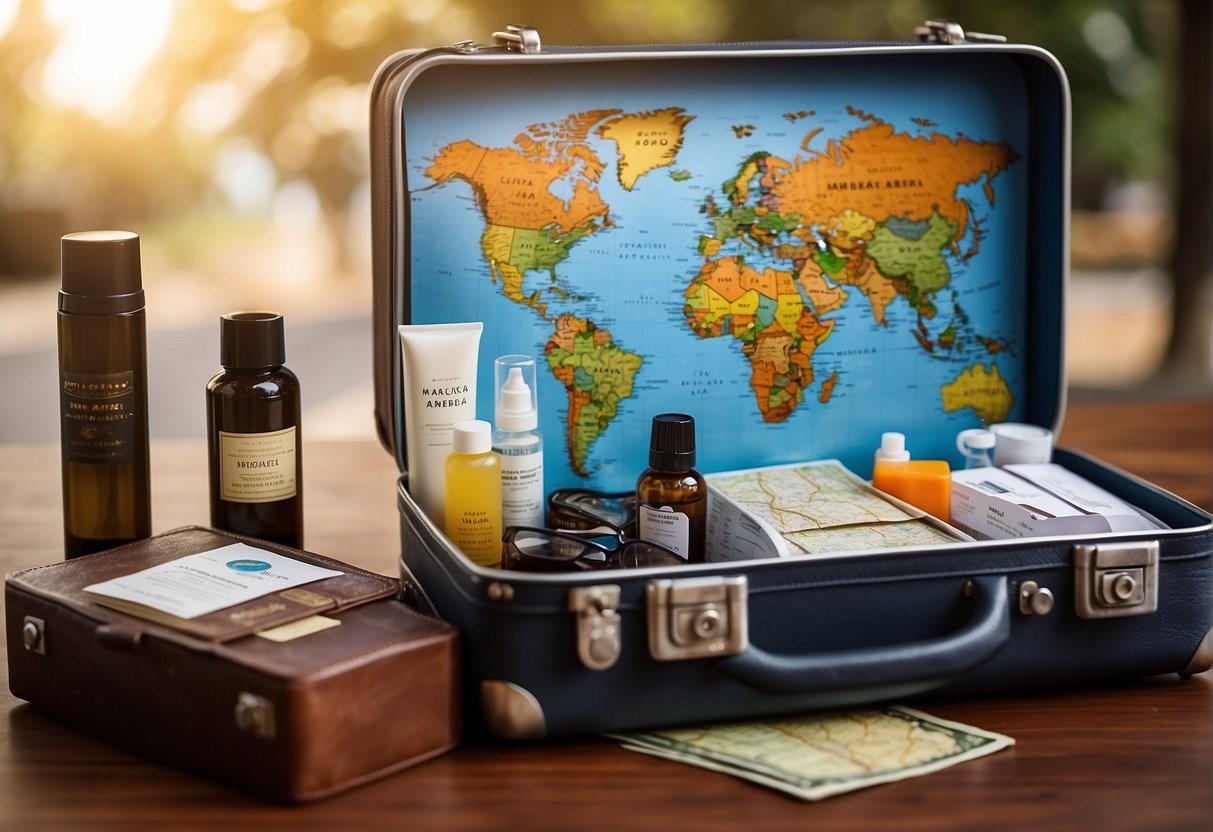While planning your itinerary is exciting, giving priority to health and safety measures can protect you from potential health risks.
Traveling to Latin America offers an array of unforgettable experiences, from savoring local cuisine to exploring ancient ruins. But stepping into this vibrant region requires attention to your wellness, ensuring that your adventure isn’t interrupted by health issues.
Staying informed about the Travelers’ Health recommendations by the CDC and preparing a travel health kit are crucial steps before boarding your flight.
While planning your itinerary is exciting, giving priority to health and safety measures can protect you from potential health risks. This means considering everything from necessary vaccinations to understanding how to access healthcare services abroad.
Being prepared for the various health scenarios you might face will let you focus on enjoying your travels rather than dealing with unexpected medical concerns.
Key takeaways
- Ensuring that you are healthy is essential for a hassle-free Latin American adventure.
- A prepared traveler is well-informed about health guidelines and vaccination requirements.
- Accessing healthcare in Latin America requires prior knowledge of available services.
Preparing for your trip
Before you jet off to Latin America, pay attention to the key steps in ensuring a healthy and safe journey: researching your destination thoroughly, staying up-to-date with vaccinations and medications, securing robust travel insurance, and organizing essential travel documents and itinerary.
Researching your destination
Understand the health risks and safety concerns specific to the country you’ll visit in Latin America. A few minutes spent on the CDC’s Travelers’ Health page can give you a good overview.
It’s also wise to stay informed about any travel advisories from the State Department and consider registering with the Smart Traveler Enrollment Program (STEP) for updates.
Vaccinations and medications
Before your departure, consult with a healthcare provider about travel and routine vaccinations required for Latin America.
Refer to the Johns Hopkins Medicine Traveler’s Checklist for guidance on immunizations and arranging prescriptions.
Remember, diseases like yellow fever and malaria are present in some areas, so you may need specific vaccines and medications.
Travel insurance and health coverage
Local medical facilities might request payment upfront and often don’t accept foreign health plans.
Buy travel insurance that covers emergency medical care and consider including trip cancellation insurance. This will protect against the financial hit of unexpected medical bills.
Travel documents and itinerary
Make sure your passport has enough validity for entry and exit, and check if visas are a must for your Latin American destinations.
Align your itinerary with documented proof if required and make duplicates of all your travel documents. Keep a copy separate from the originals, so you’re safeguarded against loss or theft during your travels.
Health and safety measures
When traveling to Latin America, your well-being hinges on taking appropriate precautions regarding food, insects, animals, and managing any existing health conditions.
Food and water precautions
Be vigilant with food and water to avoid illness.
Stick to foods that are cooked and served hot. Avoid consuming food from street vendors, and be selective with fresh fruits and vegetables that cannot be peeled.
For drinking water, opt for bottled water or water that has been properly purified. A good practice is to carry hand sanitizer and use it before eating.
Insect and animal safety
Insect repellent is a must to ward off mosquitoes that can transmit diseases like Zika, dengue, and malaria.
Apply it diligently, and wear long sleeves and pants when possible, especially at dawn and dusk.
If you’re visiting regions with wildlife, maintain a safe distance from animals to prevent bites and scratches, which could lead to infections or other health risks.
Managing chronic conditions and allergies
If you have chronic health problems or allergies, manage them by having adequate supplies of your medications.
Always carry them in your carry-on luggage. Check you have adequate insurance coverage in case you need medical attention.
Be sure your family knows your medical history and where to find copies if needed.
Your vaccinated status for routine and travel-specific vaccinations should be checked and up-to-date, including a COVID-19 vaccine.
During your travel
When you’re gallivanting through Latin America, staying on top of your well-being and knowing what to do if a health hiccup arises will let you enjoy your trip with less stress.
Staying healthy abroad
- Get vaccinated: Before jetting off, talk to a travel health specialist about getting shots for common illnesses found in the region. Keep proof of vaccination with you, as some places might ask to see it.
- Travel health kit: Pack a kit with essentials: medication for diarrhea, pain, fever, and cuts. Add repellent, sunscreen, and rehydration salts. Revisit the CDC’s recommendations for more details on what your kit should include.
- COVID-19: Stay up-to-date on COVID-19 conditions. Restrictions and requirements can shift, so stay informed about the need for a COVID-19 vaccine.
Handling medical emergencies
Know local resources
- Familiarize yourself with nearby clinics or hospitals close to your accommodations.
- Keep their contact info handy.
- For your insurance, confirm your policy covers international travel. Also, consider that medical evacuation might be out of pocket unless specified.
Travel health specialist
If you have serious symptoms, like those of blood clots, or others that can’t be managed with your travel health kit, seek local help.
Remember, a travel health specialist can often provide advice via phone.
Conclusion
Traveling to Latin America requires several health considerations, especially if you have a chronic ailment like hypertension or diabetes. Additionally, consider getting vaccinations for diseases like Yellow fever or typhoid.
And finally, do not underestimate the Latin American climate! Enjoy your stay, but don’t forget to be vigilant and stay safe.




























































































































































































